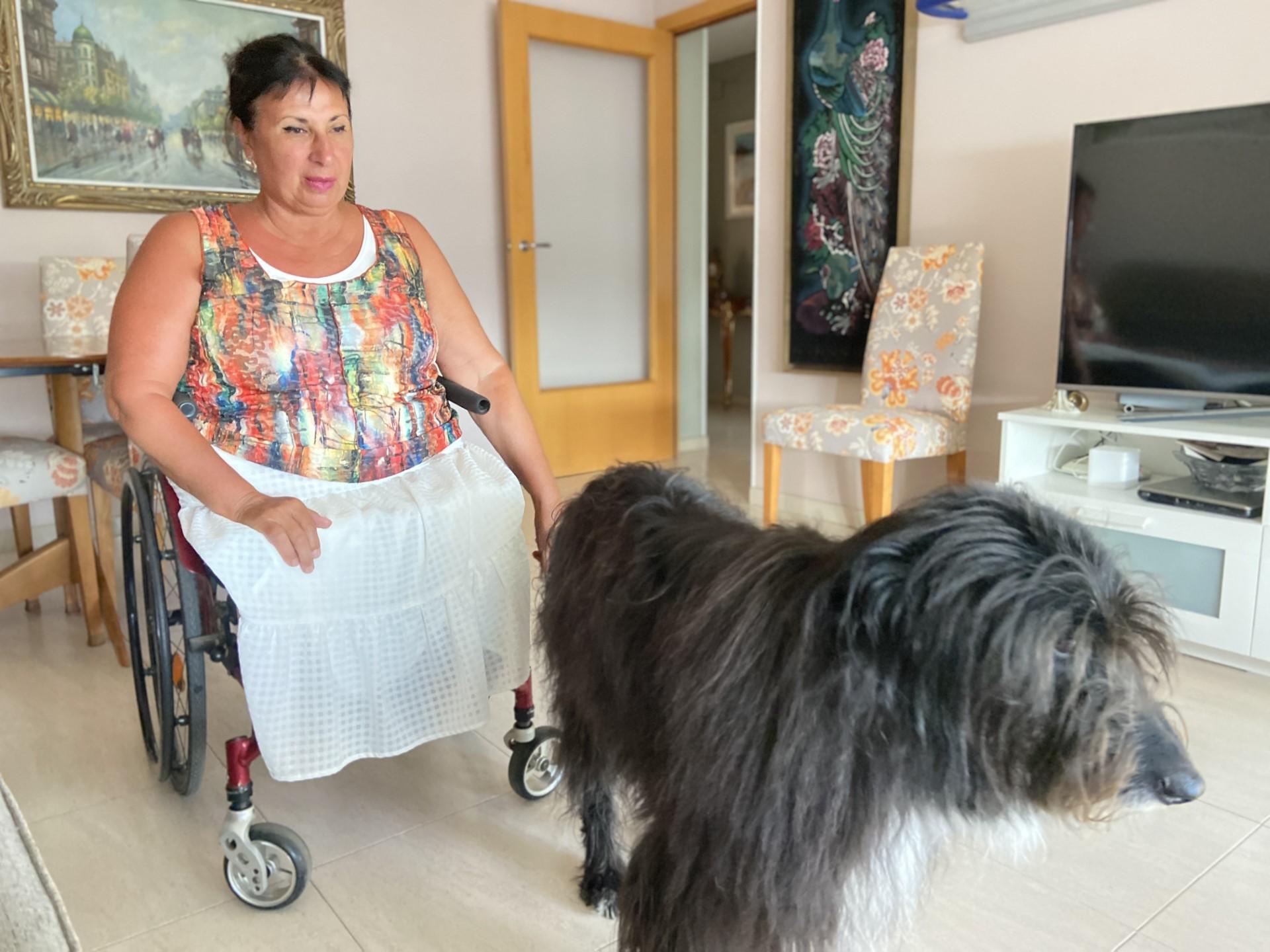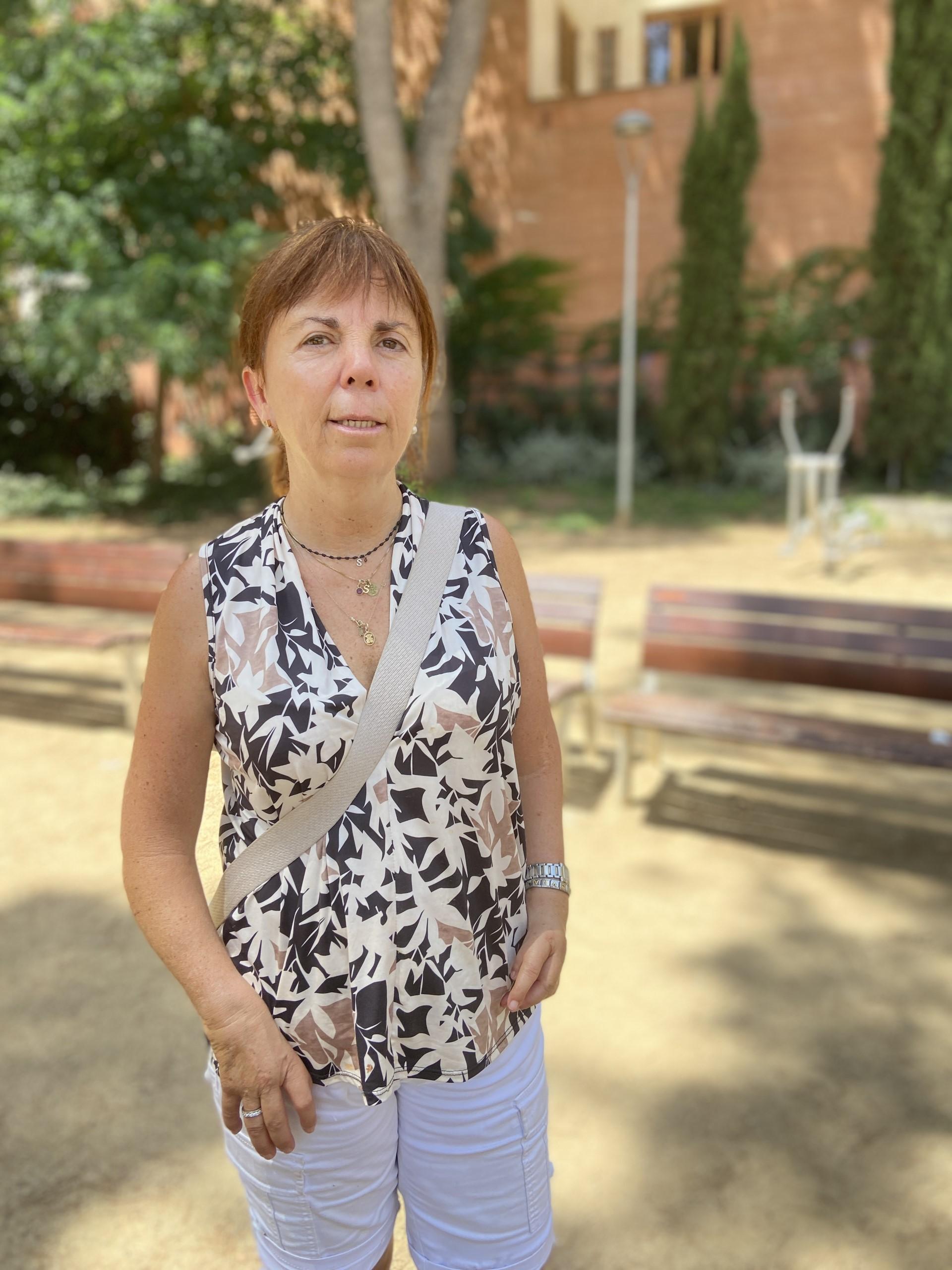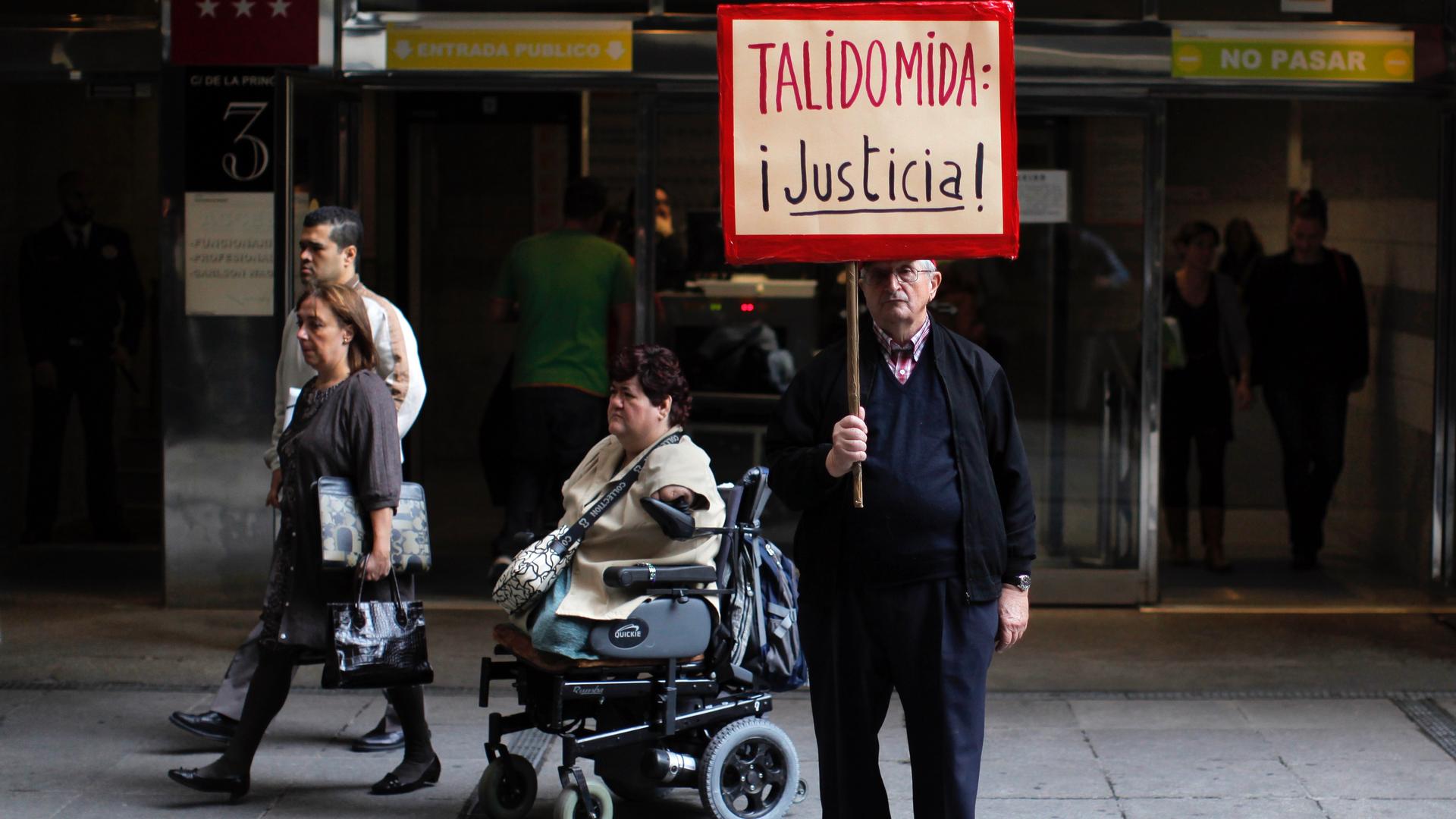The drug was thalidomide.
During the 1950s, doctors prescribed the German-made sedative to pregnant women to reduce nausea.
But tens of thousands of so-called “thalidomide babies” were born with congenital disabilities — from stunted, flipper-like limbs to damaged internal organs.
While chatting in her living room, Josefina Montpeo accidentally dropped her glasses on the floor. Montpeo is confined to a wheelchair, legless. So, picking things up is complicated. That’s where Mushu comes in.

Mushu is Montpeo’s basque sheepdog. He is trained to retrieve fallen objects, turn on the lights.
“He opens doors for me,” Montpeo told The World. “He can open drawers and bring me my medicine, she said. He can even throw stuff in the trash.”
This is hugely helpful because Montpeo, 64 years old and a widow, lives alone. Thalidomide deprived her of her legs, left one arm deformed and her spine fractured and crooked.
In the 1950s, a German laboratory called Grünenthal hailed its new thalidomide as a wonder drug. But it was never adequately tested.
The result: congenital disabilities in tens of thousands of people across the continent.
There are victims in North America, too, following short-lived clinical trials. By 1962, thalidomide was off the market. The scandal led to stricter drug testing around the world.
As for the victims, governments and Grünenthal compensated most of them. But the hundreds in Spain went ignored.
“Spain’s different,” said 56-year-old retiree Silvia San Salvador. “You could say that Spain is from another galaxy.”
San Salvador is with Spain’s Association of Thalidomide Victims. There are around 150 members. She was born with two stunted arms bent the wrong way, missing fingers and a partially developed nose. By the time she was 12, she’d had seven surgeries.
None of the surgeries were through Spain’s public healthcare system. Because in Spain, San Salvador explained, thalidomide never existed. Officially.

“All of this happened under the dictator Francisco Franco,” she said. “And the dictatorship would not admit it had allowed in medicine that caused congenital disabilities. So, the subject was never even broached.”
Nor were women warned — even as the evidence of thalidomide’s dangers mounted. San Salvador knew the cause of her condition: She still has her mother’s thalidomide prescription, with the stamp from a local pharmacy. But many Spanish victims remained in the dark.
That was until 2011, when Franco was long dead, Spain had become a democracy and two thalidomide victims went on a national TV talk show called Cerezas. Suddenly, everyone was talking about it.
Victims found each other. They organized, sued in Germany and then in Spain. But the statute of limitations had expired. So, they lobbied politicians, San Salvador said, and dumped medical proof at their feet.
“We said, just look at us.”
“We said, just look at us,” she said.
Finally, in 2018, Spain passed a law to help them. And this summer, the government apologized.
Spain’s Minister for Social Rights, Ione Belarra, posted this unofficial mea culpa on Instagram. She said that, at long last, victims would receive financial aid — to be paid out in 2024.
Spanish media have run with it. Europe’s last thalidomide victims finally compensated, read headlines. But the story doesn’t end there.
“It’s not enough money,” said victim Josefina Montpeo. “Also, they’re calling it aid.”
If it were damages, it’d be tax-free, but aid is counted as income, she said, so we’ll have to pay about half back to the government come tax season.
“Add to that lawyers’ fees,” Montpeo said. “Victims will end up with just a third of their payouts.”
Spain’s thalidomide victims say they’ll continue to lobby the government for tax-free compensation and an official apology for being ignored for decades, not just a video post on Instagram.
“What’s a life worth,” Montpeo asked, shaking her head. “Because the hardest chapter is fast approaching for us: old age. I’m going to be alone.
